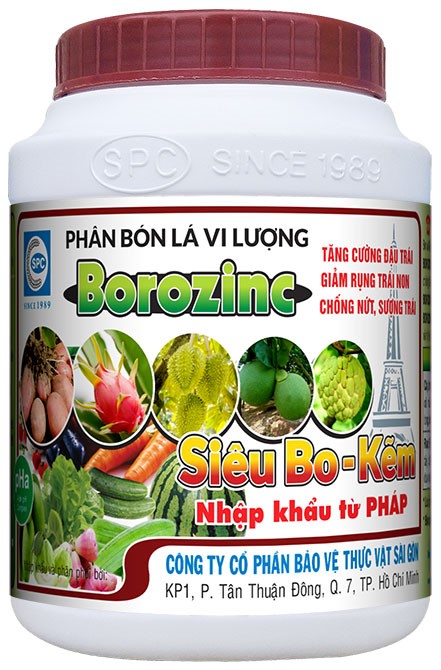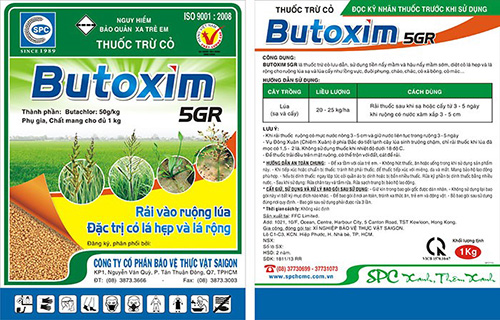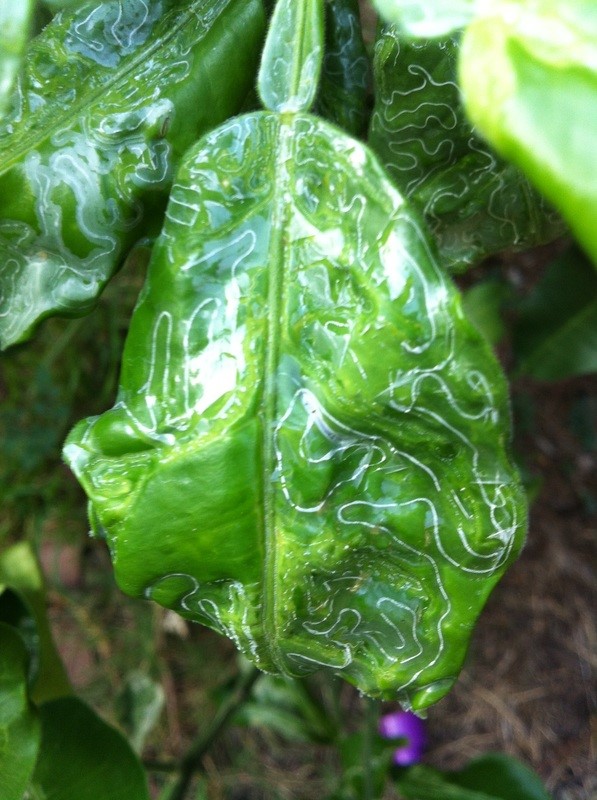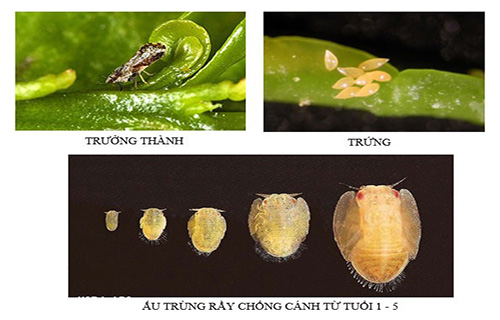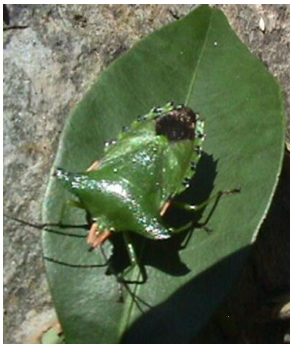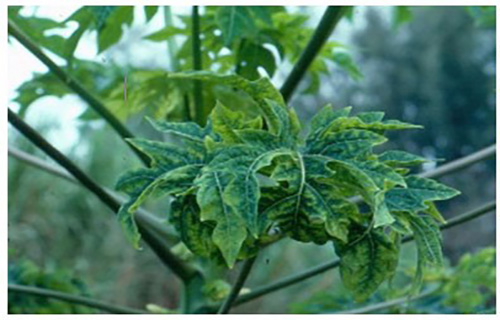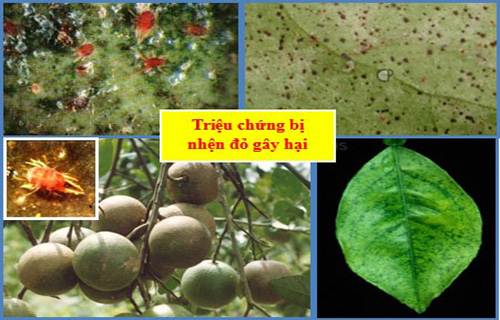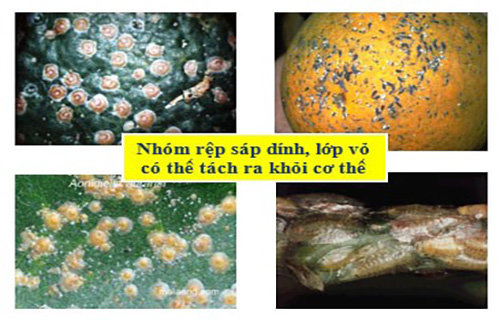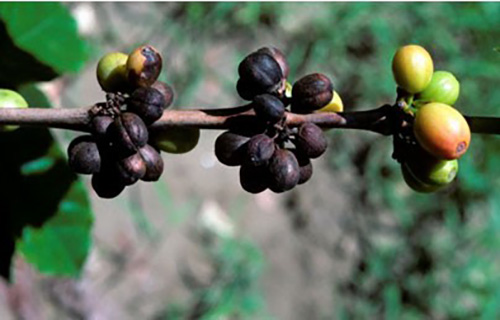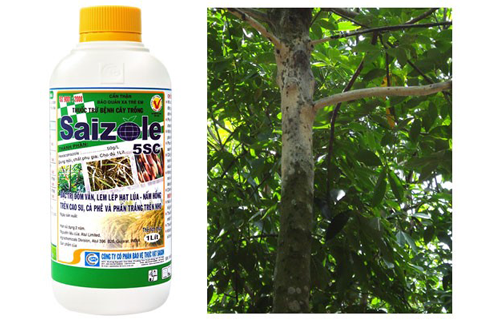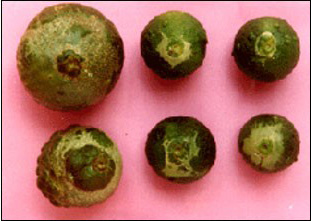|
Application of Borozinc micronutrient fertilizer to improve yield and quality in rice cultivation
21/06/2023
Application of Borozinc micronutrient fertilizer to improve yield and quality in rice cultivation Zinc and Bo deficiency occurs in many regions of the world, especially rice growing areas in Asia in general and in Vietnam in particular, sandy soils and soils with light mechanical composition are easily washed away.. , strong erosion, soils poor in organic matter...... often deficient in Bo and Zinc.. Boron and Zinc are essential for the growth and development needs of plants: - Boron is one of the most effective trace elements for plants.. Boron directly affects the process of cell differentiation, hormone exchange, protein, water and other mineral metabolism.. Boron plays an important role in the process of flower sprout differentiation, pollen formation, and helps increase pollination, fertilization, and fruit formation.. - Zinc participates in activating about 70 enzymes of many physiological and biochemical activities of the plant, plays an important role in protein synthesis...... It is also closely related to the formation of growth regulators.. in the tree.. Symptoms of Zinc and Bo deficiency in rice: - Deficiency of Bo (B): Reduces the height of the rice plant, the leaf tips become white and curled, which can kill the growth apex, small panicles, and small number of spikes and seeds per panicle.. - Zinc deficiency (Zn): The rice plants are slow to turn green, stunted, slightly dwarfed, poorly bloomed, the leaves are ruffled and often have white stripes between the young leaves and the middle leaves.. Severe zinc deficiency will cause small scattered yellow to brown spots on the middle leaves, which then expand, coalesce and become dark brown.. In order to help rice producers to prevent and overcome the above symptoms to achieve better yield and quality, Saigon Plant Protection Joint Stock Company introduces to the farmers a super Bo-micronutrient foliar fertilizer.. High-grade zinc, which is essential during growth in rice and other crops with high Bo and Zinc susceptibility.. PRODUCT INFORMATION: - BOROZINC is a micronutrient fertilizer containing Bo and Zinc easily digestible with very high content, imported from France.. -BOROZINC is canned in 100g and 200g cans.. Finished fertilizer is powder, quickly soluble and completely soluble in water.. - Manufacturer: AGRONUTRITION.. Address: Parc Activestre - 3 av.. de l Orchidee - 31390 CARBONNE France.. - Registration for circulation in Vietnam: DESANGOSSE company.. Address: Bonnel 47480, Pont-Du-Case, France.. - Exclusive distribution: Saigon Plant Protection Joint Stock Company.. INGREDIENTS: - Bo (B): 130,000 ppm (= 13% Boron) - Zinc (Zn): 40,000 ppm (= 4% Zinc) - Humidity: 1% USES: - BOROZINC effectively prevents Bo and Zinc deficiency for plants.. Because most soils in Vietnam lack 2 trace elements B and Zn.. - BOROZINC is the ideal product for rice and fruit trees sensitive to elements B and Zn, effectively preventing the symptoms of small leaves, deformation, discolouration, drooping, dead tops, drop of young fruit.. , cracked fruit, shriveled fruit, hollowed heart...... - BOROZINC is a premium product with a particularly mild formula, which is very useful to use during sensitive periods when plants are vigorous growth and have high B and Zn requirements such as: flowering, pollination, fruit setting … - BOROZINC dissolves quickly and completely in water, creating an optimal pH environment when in contact with the plant cuticle to help nutrients be quickly and thoroughly absorbed by the leaves.. DIRECTIONS FOR USE: Foliar fertilization 1.. Food crops: Rice, corn… Mix 12.5 - 25g / 25 liters of water.. Spray at periods 30, 45 and 55 days after sowing.. 2.. Beans: Peanuts, soybeans, mungbeans… Mix 12.5 - 25g / 25 liters of water.. Spray in the period before and after flowering.. 3.. Fruit trees: Durian, citrus, mango, custard apple , dragon fruit, longan… Mix 25 - 50g / 25 liters of water.. Or mix 200 - 400g for a drum of 200 liters of water.. Spraying phase: Differentiate flower sprouts, young fruit and fruit nutrition.. Vegetables: Cabbage, Cauliflower, potatoes, tomatoes, red peppers, watermelon, cucumber, french beans… Mix 25 - 50g / 25 liters of water.. Spray on the stage after returning green, before flowering, young fruit..
|
To prevent, in addition to plowing and burying weed seeds, collecting weed stalks and stumps left after tilling the land to burn, not letting weeds produce seeds in production fields, etc., the use of chemical products is still a measure. optimal because of its ability to thoroughly kill weeds, reduce labor and take advantage of more time than manual weeding.
Miner has the scientific name Phyllocnistis citrella Staint., family Phyllocnistidae, order Lepidoptera. The miner occurs in many countries in the tropics and subtropics. The main host of the miner is the citrus family - Rutaceae. In addition, the miner also attacks mangosteen and some other plants.
Adult is a small planthopper, with a body 2-3 mm long, the whole body is ash gray, slightly greenish, the wings are opaque with many small brown spots.Eggs are oval, 0.3 mm long, have a pointed end and are attached directly to the leaf surface, leaf axils.
Green bugs specialize in the fruit of citrus groups (oranges, tangerines, lemons, grapefruits, kumquats...), some people call them orange bugs, or orange suckers. Their scientific name is Rhynchocoris poseidon or Rhynchocoris humeralis.
In Vietnam, yellow leaf curl disease is very common on papaya trees, especially the disease is often severe in areas of high and continuous planting, areas with hot and arid climates. The disease has significantly reduced the yield and quality of papaya. Gardens that are infected early when the plants are young may not yield. However, up to now, many gardeners still do not know the cause and how to fix it.
Spider mites are common pests on citrus trees, especially in hot and dry climates that are suitable for spiders to grow and cause severe damage.The group of harmful spiders is usually very small in size, unlike the natural enemy spiders.
This group includes species that are generally very small in size, causing damage by sucking plant sap (on leaves, fruits, branches, stems).
There are many species of mealybugs present on the group of Oranges,Tangerines,Grapefruits and Lemons (Citrus), which can be divided into 2 groups:
+ Group of sticky mealybugs with common varieties such as Lepidosaphes, Aonidiella, Coccus and Saissetia.
+ Group of flower mealybugs with common genera and species such as Pseudococcus, Planococcus and Icerya purchasi.
Dry branches and berries disease often appear to be common damage on coffee gardens during the rainy season. The disease causes death of branchs, dry fruit, severely affects the canopy structure and coffee yield if not paid attention to prevention.
Pink disease commonly causes diseases on rubber plantations in the rainy season, especially on garden from 4-8 years old. This year, rubber has to go through a period of severe drought, weakening the tree, so now in tnshe rainy season it is easy to get infected. Therefore, it is necessary to pay attention to good management to avoid affecting the garden.
In recent years, the area of citrus has been expanded because it is a fruit tree with high economic efficiency. However, in order to sell at a high price, not only in quality but consumers also require the external beauty of the fruit, so pest management on citrus is a matter of great concern to farmers. The hot season is a favorable condition for thrips to develop and cause damage, affecting the commercial value of fruit.
- Headquarters
- SAIGON PLANT PROTECTION JOINT STOCK COMPANY
- RQ 1, Nguyen Van Quy St., Tan Thuan Ward, HCM City
- Tax code: 0300632232
- Tel: (028) 38 733 295 - 38 732 077
- Fax: (028) 38 733 003 - 38 733 391
- Website: www.spchcmc.vn - Email: info@spchcmc.vn
- SAIGON PLANT PROTECTION COMPANY
- SAIGON PLANT PROTECTION JOINT STOCK ENTERPRISE
- Lot C1-C3 Hiep Phuoc Industrial Park, Hiep Phuoc Commune, HCM City
- Tel: (028) 3873 4089 - Fax: (028) 3873 4086
- Affiliated Unit
-
- Quick Links
- Home
- About us
- Career Opportunities


